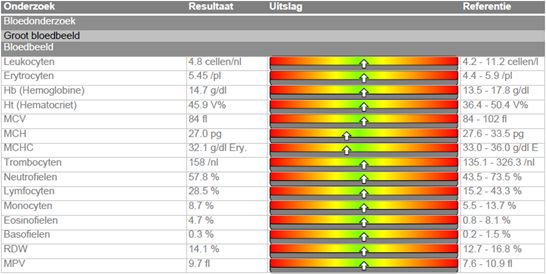From bad to worse – are you intolerant or allergic? And how do you know if you are allergic, or just intolerant? We’ll help you with that in this short article. We’ll also explain the difference and tell you more about both topics.
What complaints are you experiencing?
Do you ever suffer from headaches, fatigue or diarrhea? Or just from itching, rashes and a tingling sensation in your mouth after eating? This may be due to a food intolerance or allergy.
The tricky thing is that the symptoms can be very similar. Both intolerance and allergy are overreactions of the immune system to foreign substances from the environment such as food or pollen.
In allergy, the proteins that cause a reaction are called allergens. Our immune system thinks an allergen is a harmful substance and makes antibodies to fight it. You often don’t notice the first contact because you don’t get any complaints. The next time the body comes into contact with the allergen, the antibodies trigger an allergic reaction with fairly acute symptoms.
In intolerance, the body reacts to substances that are not properly digested or broken down by the body. The symptoms in intolerance often occur later, sometimes after 48-72 hours.
Find out allergy or intolerance through blood tests
Of course, when you experience the aforementioned symptoms, the question is whether it is due to an allergy or intolerance. This is also important for an orthomolecular therapist or physician to know. With targeted orthomolecular treatment, patient complaints can be treated.
To determine what the problem is they do diagnostic blood tests.

Blood is a fluid tissue. It is considered a supporting tissue because it consists of blood cells surrounded by a liquid matrix, the blood plasma. The amount of blood in a 70-kg person is about 7.5% of this weight. This is equivalent to about 5 liters of blood.
About 45% of blood consists of blood cells and cell fragments, and the remaining 55% consists of blood plasma.
Different types of blood tests
Several forms of examination can be performed on venous blood:
- Hematological examination, in which the numbers, nature and characteristics of blood cells are determined.
- Biochemical or clinical chemical blood test, in which the amount of a variety of substances is determined, especially substances that:- have a function in the blood, such as albumin
– are a waste product of metabolism, such as kreatinine
– are a measure of cell damage, such as ASAT and LDH
– have a substrate function in the body, such as glucose and cholesterol
– Have a signaling function (hormones) such as TSH - Serological testing, usually looking for antibodies to a variety of pathogens or allergens.
- Microbiological examination, looking for pathogens (bacteria, viruses, parasites) themselves.
How do you find out what you are allergic to?
So, how do you know if you are allergic? We’ll explain. The immune system “remembers” and responds! As you read earlier, an allergy occurs when there is repeated contact with the allergen. One usually does not notice the first contact because there are no symptoms. This leads to what is known as sensitization: the body becomes hypersensitive to a particular allergen.
This period between initial contact and the appearance of symptoms after renewed contact can last from a few days to several years.
Upon renewed contact with the allergen, the immune system “remembers” the allergen and can activate all available defense mechanisms within a very short time. As a result, there is an allergic reaction, which can vary greatly depending on the organ affected.
Would you like to test for an allergy?
If you also think you are dealing with an allergic reaction, please let us know. We provide no-obligation advice on how to find out what you are allergic to, such as certain nutrients. We can also perform blood tests if necessary. That’s how you know if you’re allergic or not.
Write an email to info@bodyswitch.nl with your question or ask your question through our
contact form
.
Meet our food intolerance testing
Do you feel that you are allergic or intolerant to certain nutrients? Then it is also possible to have this tested with us. Below is a list of food intolerance tests we facilitate. Please feel free to contact us for options.
- IgG Nutritional Screening small
- IgG4 Nutritional screening small
- IgG milk and egg screening
- IgG4 milk and egg screening
- IgG cereals and nuts screening
- IgG4 cereals and nuts screening
- IgG meat and fish screening
- IgG4 meat and fish screening
- IgG fruit and vegetable screening
- IgG4 fruit and vegetable screening
- IgG daily’s screening
- IgG4 daily’s screening
- Dietary total IgG screening (280pcs)
- Nutritional screening total IgG4 (280pcs)
- IgE total
- IgE nutritional screening small/medium/large
- IgE Inhalation Allergens
- Gluten intolerance
- Lactose
- Micro-nutrients
- …..

